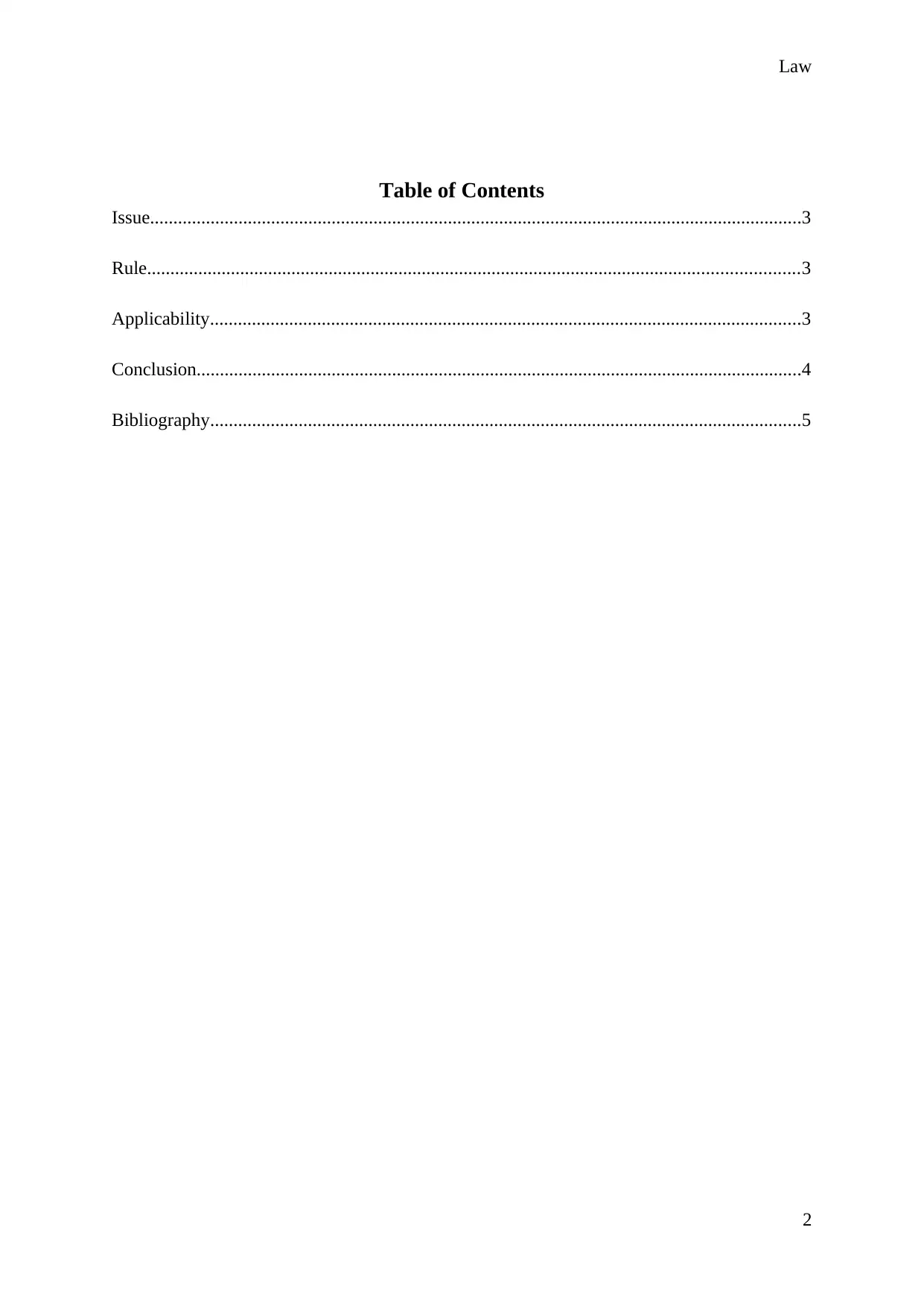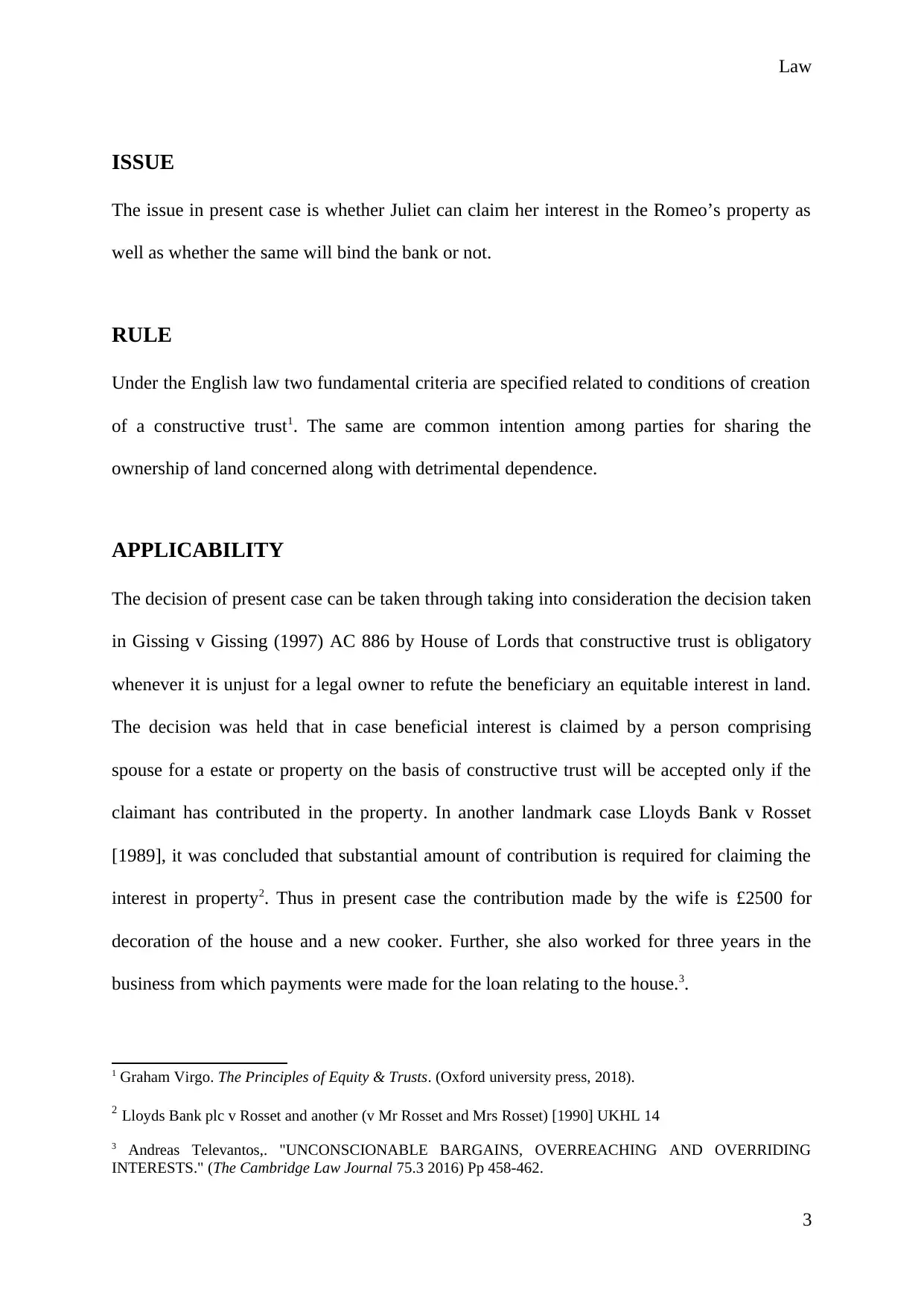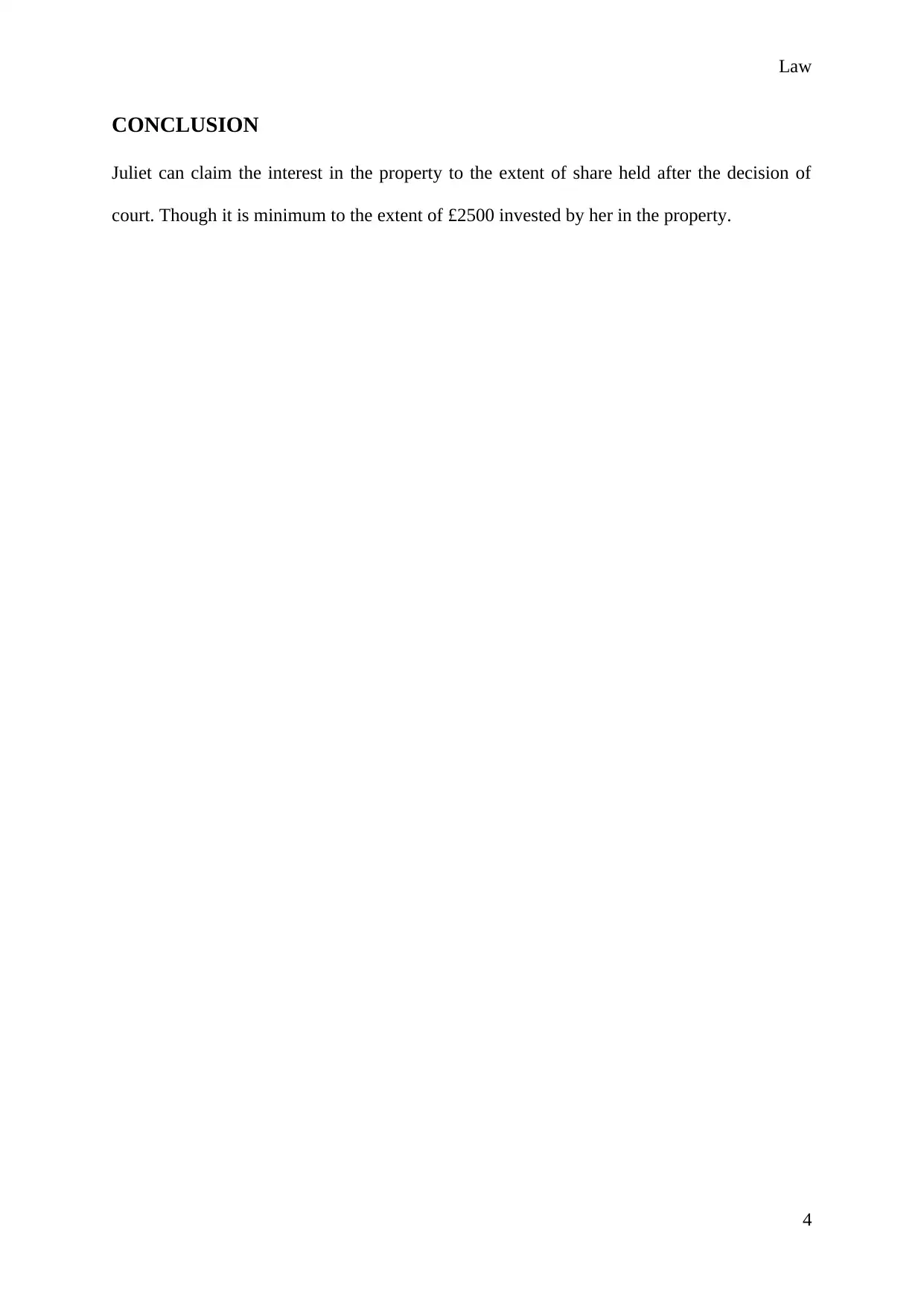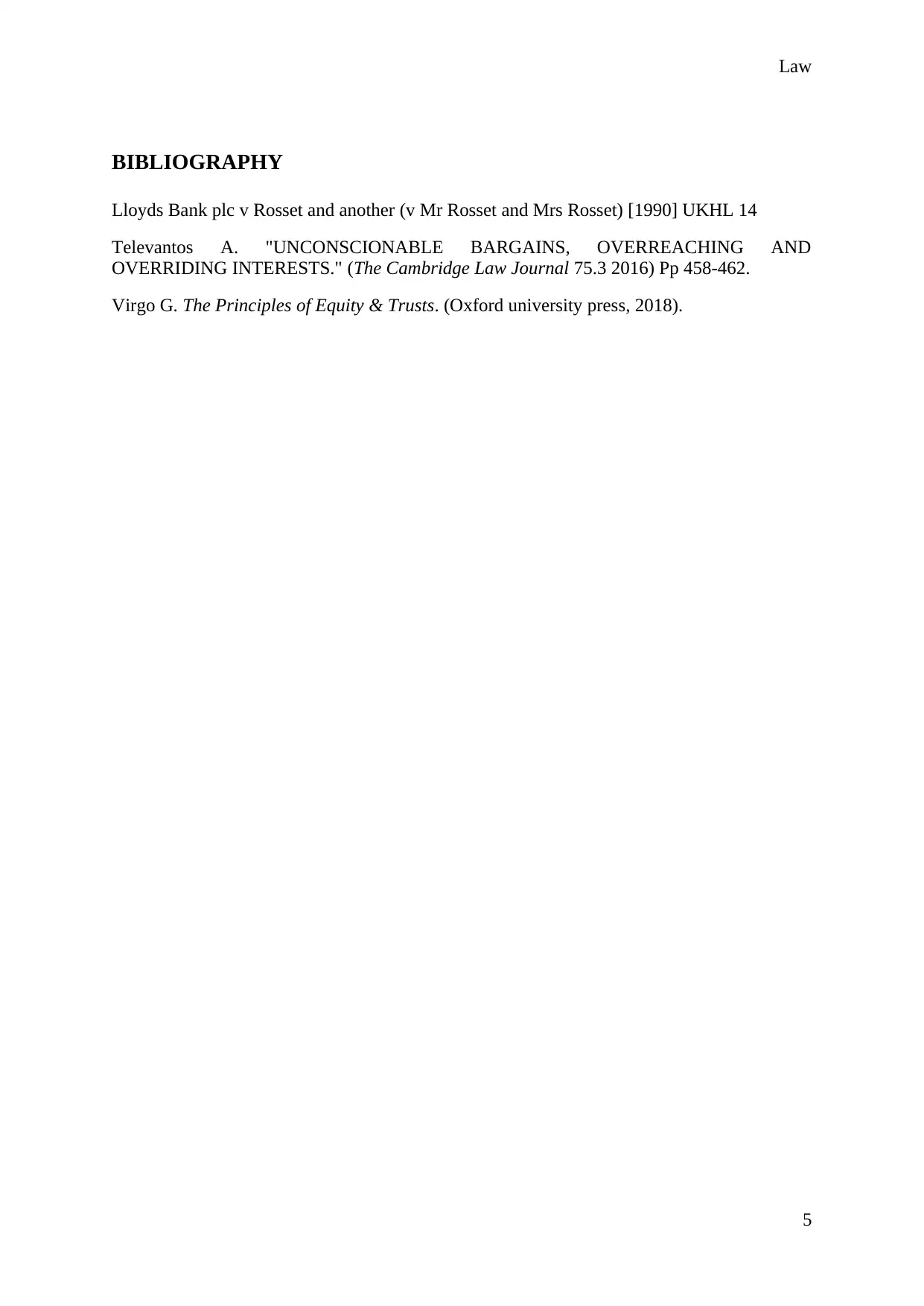Property Law Case: Juliet's Interest vs. Bank's Claim on Romeo's House
VerifiedAdded on 2023/04/21
|5
|432
|59
Case Study
AI Summary
This case study examines the legal issues surrounding Juliet's claim to an interest in Romeo's property, which is being contested by a bank seeking to recover a loan secured against the home. The analysis centers on whether Juliet can establish a constructive trust based on her contributions to the household and Romeo's business. Key legal principles, including common intention and detrimental reliance as established in cases like *Gissing v Gissing* and *Lloyds Bank v Rosset*, are applied to determine the extent of Juliet's potential equitable interest. The conclusion assesses Juliet's likelihood of success in claiming a share of the property, considering the financial and non-financial contributions she made during her relationship with Romeo. Desklib offers more case studies and solutions for law students.
1 out of 5






![[object Object]](/_next/static/media/star-bottom.7253800d.svg)